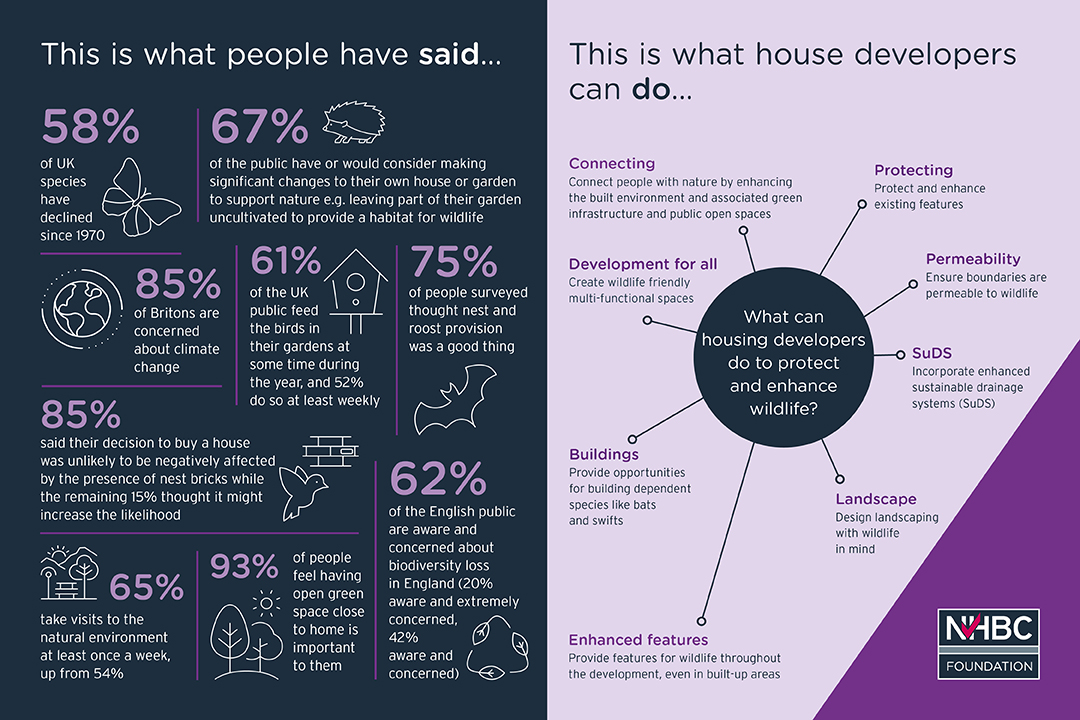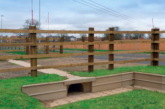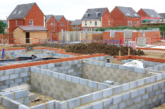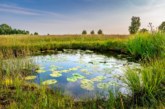
Climate change is the greatest challenge of our time, which combined with Government demands for greatly increased housing supply, is creating a balancing act which housebuilders and developers must consider in all its aspects – says NHBC Foundation.
The NHBC Foundation’s recent publication, ‘Biodiversity in New Housing Developments’, in partnership with the RSPB and Barratt Developments, highlights that biodiversity should be considered at the earliest stages of planning new home developments to encourage wildlife and help reverse habitat decline.
To mark World Environment Day they have created a new infographic which focuses on some of the key findings of the report.
The design shows the views from a YouGov study on biodiversity which highlights how 85% of people are concerned about climate change and that 67% of people would consider making significant changes to their own house or garden to support nature.
It also pinpoints how the housebuilding industry can promote biodiversity on-site by designing wildlife friendly landscapes and providing more opportunities for building dependent species such as swifts and bats.
Commenting on the report Beccy Speight, CEO, RSPB said: “The housebuilding industry is uniquely placed in having an opportunity to create not just sustainable houses, but new, sustainable communities, where people thrive alongside wildlife.
I hope that the industry will embrace it and help to drive positive change. We all have our part to play as we seek to revive our world.”
Richard Smith, NHBC’s Head of Standards, Innovation and Research added: “In a year so focused on health, our report is a timely reminder of the many benefits nature can provide when successfully integrated into new homes and developments.
“As we head towards COP26, we want to support those in the housing and construction sector to think more about how they can better integrate biodiversity and climate resilience into new home developments to help to achieve the country’s climate change goals and improve health and wellbeing in local communities. Biodiversity Net Gain will soon become mandatory in England so there’s no excuse not to start looking at these issues now.”








